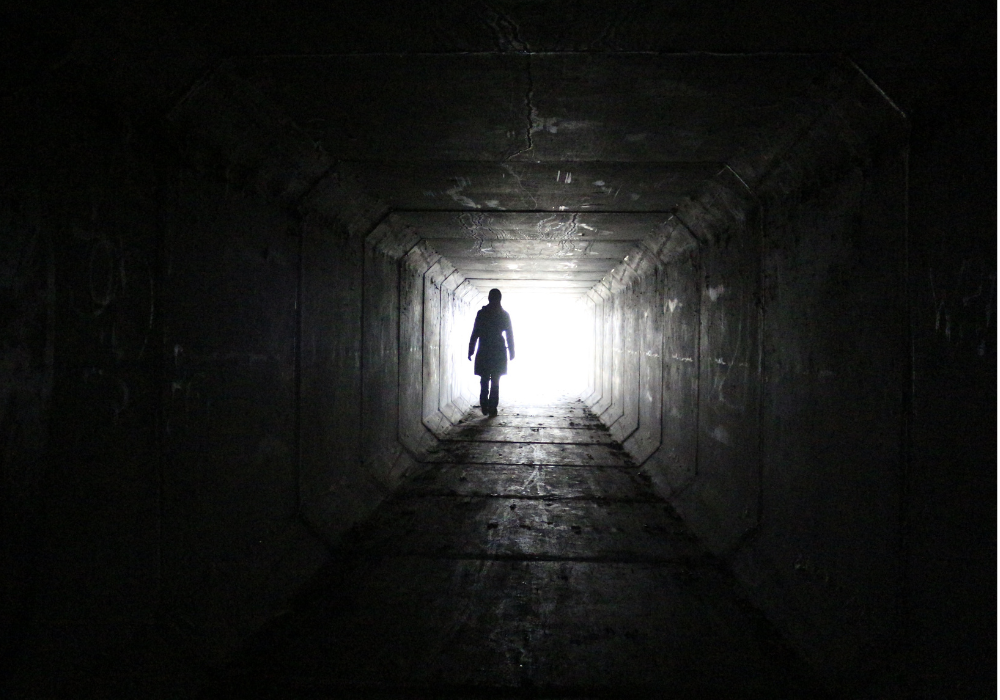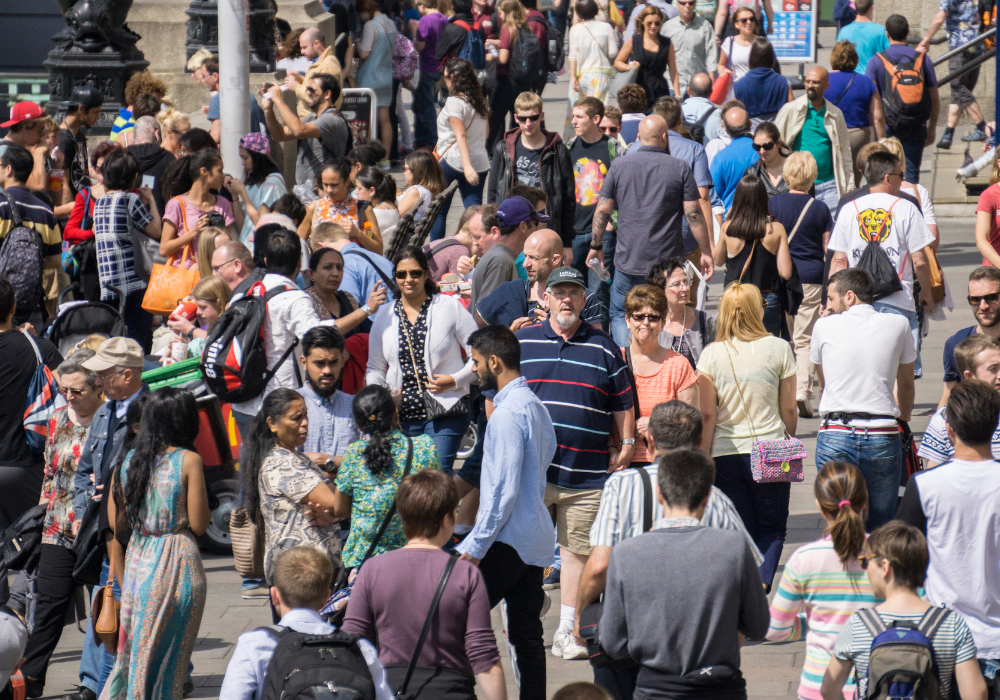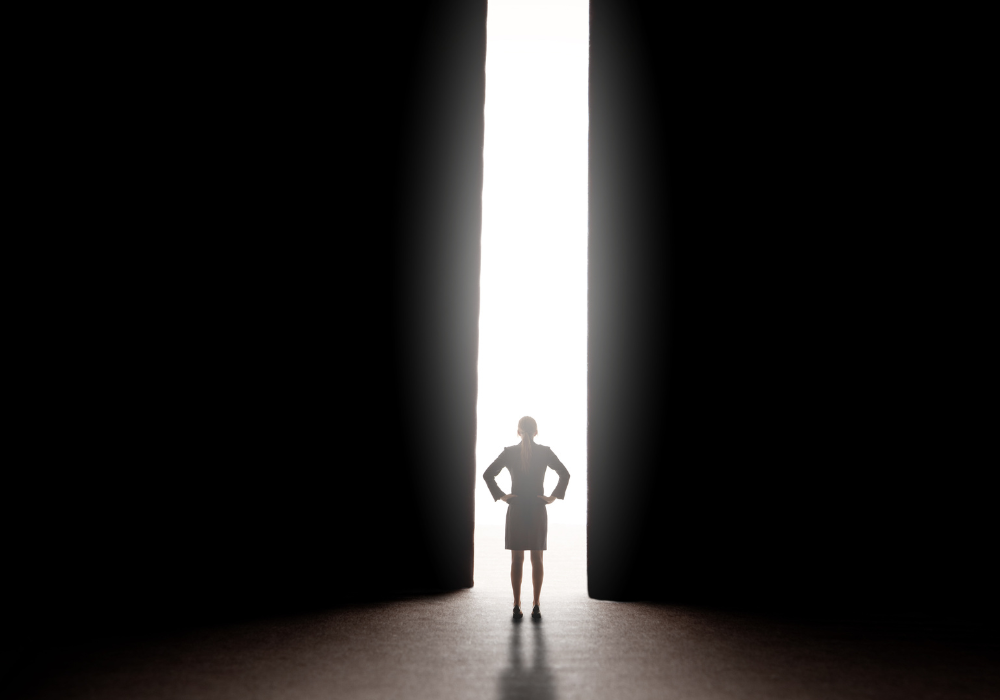Dying is part of life, but don’t let fear of death keep you from living fully.

Death is coming for all of us—there’s no escaping it. Yet living in fear of it is a choice we don’t have to make. When death lingers in our thoughts like a shadow, it robs us of the light that’s available in each day. The anxious rumination, the dread of the unknown, and the paralysis of not knowing when it will happen can quietly steal the joy of our lives one moment at a time.
But what if the very awareness of death could become a guide instead of a threat? What if accepting its presence allowed you to live with greater freedom, clarity, and meaning? These 13 powerful mindsets are not just ways to ease fear—they are invitations to wake up to your life, to savor the now, and to love deeply with the time you’ve been given.
1. You Don’t Have to Understand Death to Accept It

We live in a culture obsessed with explanations. But some experiences—especially death—are beyond what we can logically unravel. Death remains one of life’s most profound mysteries, and waiting until you fully understand it before allowing yourself to make peace with it only delays your freedom from fear, as stated by Gustavo Razzetti at Medium.com. It’s like standing at the edge of an ocean, waiting for the waves to explain themselves before stepping in.
Instead, you can choose to soften your grip on needing answers. Accepting death doesn’t mean you’re giving up—it means you’re opening up. It’s about leaning into the unknown with humility and courage. When you release the urge to solve the mystery of death, you gain the ability to live with a quiet kind of confidence that doesn’t demand control to feel safe.
2. Fearing Death Means Missing Life

When death anxiety becomes your constant companion, it keeps you stuck in a future that hasn’t arrived and steals your ability to experience the beauty of the moment you’re in. You might find yourself holding back from joy, avoiding risks, or shrinking your world just to feel safer. But ironically, this fear limits the very thing you’re trying to protect—your life, according to Sam Dresser at Psyche.
Imagine what your days would feel like if your attention shifted from fear to wonder. What would you notice? Who would you cherish more deeply? Life doesn’t pause while we worry about its end—it marches on. The more you engage with your present reality, the more life opens up to you. When you live like your days are precious, they become sacred—even the ordinary ones.
3. Death Is a Natural Part of the Life Cycle

It’s tempting to see death as a cruel interruption, something unfair that cuts life short. But from a broader view, death is simply part of the cycle that governs all living things, as shared by Janna Benson Kontz at Hospice Red River Valley. Trees lose their leaves, animals return to the earth, and the seasons shift without our permission. You are part of that same rhythm—interwoven with every creature that has ever existed.
When you start to view death not as a mistake but as a natural and expected stage of life, its grip loosens. There’s a kind of comfort in realizing that your journey mirrors every other living thing on this planet. You’re not being singled out. You’re participating in a universal story. In that shared truth, there’s something oddly peaceful and even beautiful.
4. Avoiding the Topic Won’t Keep It Away

Many people think that if they don’t talk about death, maybe they won’t have to face it. But silence doesn’t offer protection—it just feeds the monster in the shadows. When you avoid conversations about death, you leave your mind vulnerable to vague, shapeless fears that often grow bigger than reality itself.
Facing death directly, through conversation, reflection, or planning, gives form to what once felt formless. It helps you process the inevitable in a way that reduces anxiety, not amplifies it. Talking about death doesn’t summon it—it just helps you prepare for it with grace. The more openly you face it, the less power it has to haunt you in silence.
5. Facing Mortality Makes You Appreciate Life More

Oddly enough, death has a way of sharpening your focus on what matters most. When you let yourself acknowledge that your days are numbered—not in a morbid way, but in a mindful one—you begin to prioritize your time differently. You stop waiting for the perfect moment to pursue what you love or to say what’s in your heart.
Mortality gives life its urgency and sweetness. It’s what makes a quiet morning or a child’s laugh feel sacred. If you live like time is infinite, you risk wasting it. But when you live with the awareness that life is fleeting, every moment becomes more vibrant, more deliberate. You begin to cherish things not despite their impermanence, but because of it.
6. You Are Not Alone in This Journey

There’s something uniquely isolating about the fear of death. It can feel like an experience you’ll have to go through completely alone. But death is the one thing that unites every human being, past and present. Every ancestor, every hero, every person you admire—they’ve all walked this same path.
Knowing that billions of others have faced the same fate, and that millions more will follow, can be comforting. It doesn’t erase the fear, but it can shrink the loneliness. You’re not an exception. You’re part of a vast and timeless community of souls who have all asked the same questions and carried the same uncertainty. And many have found peace in the journey.
7. Legacy Matters More Than Longevity

In a culture that often worships youth and clings to longevity, it’s easy to equate a long life with a meaningful one. But the truth is, it’s not how long you live—it’s how deeply you love and how much you contribute that gives life its weight. You can live a short life that’s full of purpose or a long life that’s merely survived.
Focusing on legacy—on the relationships you nurture, the lessons you share, the kindness you extend—allows you to shift your energy from fear of death to the joy of living intentionally. When you know you’re planting seeds that will outlive you, death doesn’t feel like a loss. It becomes a handoff, a continuation of the story you helped shape.
8. Your Body Is Temporary—But Your Spirit Lives On

It’s natural to fear the physical aspects of death—the deterioration of the body, the final breath. But many spiritual traditions and personal beliefs offer another view: that who you are at your core is not confined to your body. Whether you call it a soul, an essence, or your energy, there’s something about you that touches others in ways that endure.
Even if you don’t believe in an afterlife, think about how you remain present in the lives of those you’ve impacted. Your love, your words, your influence—they ripple outward. In this way, your spirit continues through memory, through story, through the changes you inspired. Death may take the body, but it can’t erase your presence from the hearts you’ve touched.
9. The Unknown Doesn’t Have to Be Scary

Humans have a complicated relationship with the unknown. We fear it, we fight it, and yet we’ve lived through it countless times. Every major life transition—your first job, becoming a parent, falling in love—was an unknown until you stepped into it. And many of those experiences brought depth and wonder you couldn’t have predicted.
Death is the ultimate unknown, yes, but unknown does not mean evil. It simply means unfamiliar. When you reframe the unknown as a place of possibility instead of punishment, you soften your resistance. Just as the darkness of the womb gave way to life, so might the darkness of death hold more than we can currently understand.
10. You Can Choose to Focus on What’s in Your Control

So much of death anxiety comes from feeling helpless. You can’t stop it, you can’t predict it, and you don’t know what’s on the other side. But you can choose how you approach it. Preparing your will, expressing love to those around you, tending to your health, and even discussing your wishes—these are all acts of empowerment.
By focusing on what’s within reach, you build a foundation of calm. You’re not passively waiting for death to find you—you’re actively living with awareness. Preparation doesn’t mean defeat; it’s a declaration of your values. It tells the people you love, and yourself, that you faced this truth with courage and care.
11. Fear Doesn’t Change the Outcome—It Only Steals Your Peace

You can worry about death every day of your life, but it won’t stop it from coming. What it will do is take your present peace hostage. Fear is like a thief in the night, not of your years, but of your joy. And the irony is, you’re already surviving the thing you fear every single day—uncertainty.
Peace comes when you stop bargaining with what you cannot change. You free yourself when you decide to feel the fear but not obey it. When you accept that death is inevitable but choose to live boldly anyway, you reclaim the present. And that, in the end, is where life really happens.
12. Death Isn’t an End—It’s a Transition

For many, death is not a closing door but a gateway. Whether it’s a return to spirit, a transformation into energy, or a merging with nature, death is often viewed as movement, not disappearance. It may be the end of one form, but not necessarily the end of your story.
Seeing death as a transition rather than termination invites a sense of continuity. It encourages you to imagine that your journey doesn’t vanish—it just changes. This mindset softens the harshness of endings and replaces it with a sense of evolution. Whether literal or metaphorical, transition carries hope, and hope dissolves fear.
13. Embracing Mortality Can Deepen Your Relationships

When you truly accept that time is limited, your relationships take on new meaning. Small annoyances lose their grip, and words of love come more freely. You become more present with the people around you because you know these moments are not guaranteed. Mortality clarifies what really matters.
This awareness doesn’t create fear—it cultivates tenderness. You listen more, forgive more easily, and speak your truth with less hesitation. Death may be coming, but while you’re here, you can choose connection. And in doing so, you create memories that will echo long after you’re gone.
